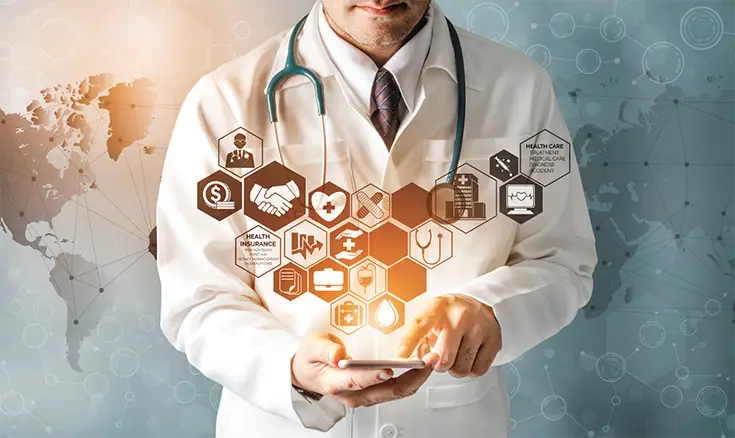Medical practice is quite outdated compared to other areas. Doctors still need to fill out a lot of paperwork during treatment. They start with the documents in the insurance and end with the patient's prescription. The introduction of healthcare CRM software can reduce the burden on physicians and make the patient care experience much better.
CRM is not new, and many companies already know how to communicate with customers. But CRM in medicine improves the communication experience with patients and makes certain diseases easier. They start with the documents in the insurance and end with the patient's prescription.
CRM for Healthcare Industry
CRM in the healthcare industry is a kind of evolution in the work organization. There are many factors to simplify the job, but hospitals are not provided with the equipment to support CRM. CRM should contain all the patient data, allowing the use of other providers. For example, EHR will allow you to use patient data and make changes. This is one CRM component that people will use quite often.
CRM should be as much about patient data as it is about hospital data. If we talk about the first functionality, there should be patient data on treatment or past diseases. Also, chronic diseases or previous surgeries will allow more accurate diagnoses. For example, if a patient complained of stomach pain, the first suspicion would be inflamed appendicitis. But if the card does not mention the removal operation already performed, a second operation will be extra and will only waste time and money. Therefore, clinics should use CRM to collect all the data and data about the hospital, and the system can plan the workload of doctors or keep a report on the availability of drugs.
How does Healthcare CRM Software Operate?
Healthcare CRM software works quite similarly to any other CRM. If we talk about CRM components and how they interact, we can highlight some points. When you first take a patient to the clinic, a questionnaire is created, where data about the visit is entered. Then, the patient already independently enters their data from the medical card. And a ready-made questionnaire is available in the standard CRM system. On the second visit, the patient will be able to receive more detailed help since the doctor will have a medical history. When adding a reminder function, patients cannot forget about the appointment.
There are several working schemes when viewed from the side of the hospital. Because doctors will be able to enter patient data faster, which will allow them not to spend a lot of time on bureaucracy, it will also be possible to have general trends of diseases in the hospital, which will enable you to give your patients more specific recommendations. The hospital will also be able to plan the level of development more since, in one system, it will be possible to track trends in patient requests.
What are the Advantages of Implementation of a Healthcare CRM?
Although the advantages of a single system were already said in the text, it is still necessary to pronounce them more clearly. If the benefits are understood, the healthcare software development company can release new software to help hospitals with suitable systems.
- A single system allows hospitals to keep more precise records. So in one system, there will be both patient data and data on the development of the hospital. With such functionality, you will not have to pay much money for several systems simultaneously.
- Cheap. Although it seems like a kind of wildness, it will be cheaper to provide a CRM hospital than to buy different functions from different providers.
- Relatively easy to develop. There are already companies that only build software for hospitals. Therefore, outsourcing development will be the right decision. Especially when using outsourced software testing services, the product's release to the market will go faster because testing takes a lot of time.
- Improved communication with patients. When treating a patient, they will be able to know the details of the manipulations that they will do. Also, direct contact with the doctor will give you a sense of security, increasing confidence and reducing the risk that the patient will not want to take medication.
- Less workload for doctors. Due to the electronic system, the likelihood of a burden on the doctor is reduced. He will not need to spend much time filling out the bureaucracy, which will positively affect the doctor's involvement in the work.
Conclusion
Healthcare CRM software is an excellent solution for most hospitals. People can find all data about patients and the expected development by going into one system. This will at least save money on providing different software. Also, with a single database, it will be easy to find out about the patient's illnesses and what operations were performed. Therefore, making unique software is now quite profitable because, in the future, the demand for them will only grow. With the help of outsourcing, it will be easy to implement software in life.

